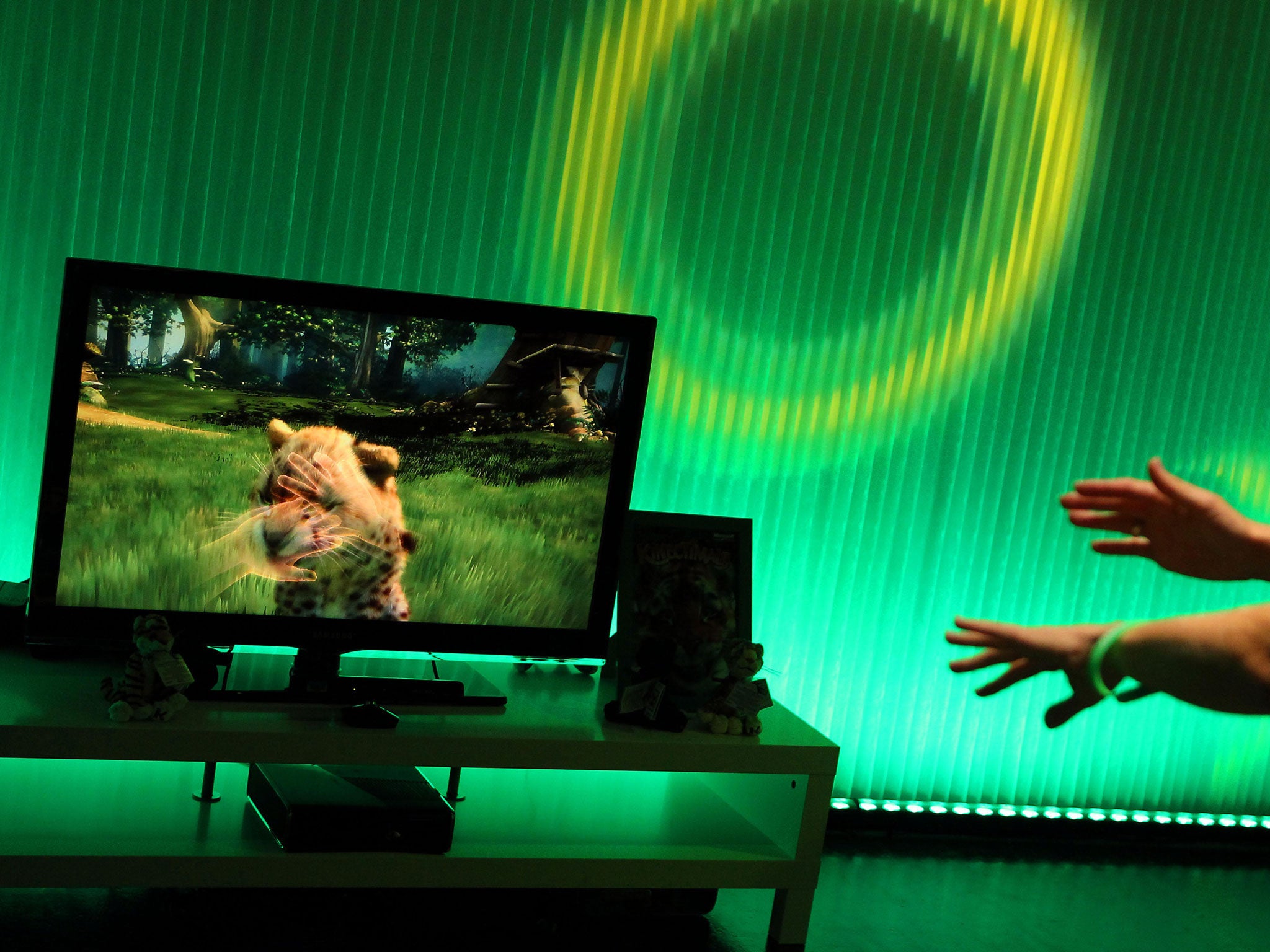Apple buyout of 3D-sensor company PrimeSense gives fans a hint of the next big thing
The tech giant has acquired PrimeSense, a start-up specialising in the kind of 3D motion technology used in Microsoft’s Xbox

Few companies are as tight-lipped about new products as Apple. Under the late Steve Jobs, the Californian firm went to great lengths to safeguard its ideas, jealously guarding its plans until it was ready to bring new devices to market.
And although the chatter before this year’s launch of the iPhone 5C suggested the culture of secrecy might be relaxing under Mr Jobs’s successor, Tim Cook, Apple refuses to give anything away about the rumoured follow-up to its tablets and phones: will fans be getting Apple TV sets for Christmas 2014, or will they be queuing for an Apple watch?
One recent hint came from Mr Cook himself, when the Apple chief executive seemed to show an interest in the emerging market for wearable devices at a Silicon Valley conference this year. But he was non-committal, saying only that the technology was “ripe for exploration” and that a lot of companies would be active in the new market. When asked at the AllThingsD conference if Apple would be among them, he simply said that he didn’t “want to answer that one”.
What, then, might Apple do next? If the company’s latest acquisition is anything to go by, the new gadget might involve some kind of 3D sensor. In a deal first reported by the Israeli press over the summer and confirmed over the weekend, Apple has snapped up PrimeSense, an Israel-based start-up that specialises in 3D-sensor technology of the kind that powered Microsoft’s Xbox Kinect gaming device.
Using hi-tech cameras and motion sensors, the Kinect allowed gamers to, as PrimeSense puts it on its website, “use their entire body to control play, action and movement of their onscreen characters”. Gamers could manipulate their on-screen avatars by jumping and gesturing, instead of pressing buttons on a keypad.
Apple did not say how much it had paid for the business. But reports put the price at around $350m (£220m), small change for a technology giant sitting on around $150bn of cash.
Staying true to form, Apple would not say why it was buying PrimeSense, dryly noting that it simply “buys smaller technology companies from time to time”.
The company, whose other recent acquisitions include mapping specialists Embark, Locationary and Hopstop, added: “We generally do not discuss our purpose or plans.”
But news of the deal was enough to spark a fresh round of rumours. PrimeSense presents Apple with a number of options, as its technology applies both to the company’s current product line and to potential products such as a full-blown TV set.
Regarding the former, talk soon focused on Apple’s smartphones. PrimeSense’s portfolio features what it bills as the “smallest and most robust 3D sensor available”. The Capri, as its known, could be used to bulk up the iPhone, giving it an edge over rival devices as Apple tries to see off the threat posed by the likes of Samsung. The same could be true for the iPad, which in theory could be refreshed with a 3D sensor.
Ever since Mr Cook took over, however, attention has been focused on new products, not new versions of existing products. Although Apple remains a giant of a business, its sales enviable by any measure, questions have been raised about future growth, as investors wonder whether the company still has what it takes to conquer new product categories in the way that it used to under Mr Jobs.
What might PrimeSense tell us about Apple’s next big launch? The company’s gossip website, MacRumours, was quick to highlight reports from this year about the possible use of motion control technology in the rumoured Apple TV set. Recent rumours have suggested that progress on the device might have slowed as Apple tries to resolve deals with content providers, but the company has not been reported to have given up on the idea.
So, how might an Apple TV benefit from the PrimeSense deal? The competition might offer the most obvious clue. Samsung’s latest Smart TVs already feature something called Smart Interaction, technology that allows users to control their TV sets using voice – and motion – technology.
Sitting on your couch, you can adjust the volume, whiz through menus and zoom in on images with a series of gestures. It’s the kind of feature that PrimeSense has shown itself to be expert at – and, if Apple does produce a TV, it might be part of the sales pitch when Mr Cook takes the stage to introduce the new devices.
Apple by Numbers
£350m Reported cost of PrimeSense
£150bn Estimated cash pile
Join our commenting forum
Join thought-provoking conversations, follow other Independent readers and see their replies
Comments